Last month I was invited to go and speak at a school careers event. My audience was a collection of young people stuck at that tough intersection between being at school and starting to think about what they want to do for a career. I don’t envy them.
While I was asked to talk about my career and the various trappings of consulting, speaking, and writing, I told them I didn’t think this was the most important thing for us to talk about. Instead, I wanted to share how the path we often take to our careers is important, but there are so many things outside that path that can play a critical role in our broader success and overall happiness.
When I was 16 myself, I had a vague idea about what I wanted to do, but had no concrete idea of where I was going, and how I would get wherever I needed to be. Today I want to share my own path and how some critical things outside of my education played a formative role in the career I have today. My hope is that some young people may read this and find it both informative and reassuring.
Somewhat amusingly, I found my National Record Of Achievement, which includes reports from my teachers around the time I was 16-years-old. I found it pretty amusing, so I am some including a few samples for you to poke fun at me over.
The Path
When I was growing up in England, the map to your career was pretty consistently shared by parents and teachers alike. You go to school, work hard, and get good GCSEs. Then, you do your A-Levels for two years, work hard, and get more good grades. This earns you enough points to get into a decent university. You then slog through your degree over the next four years (while drinking copious amounts of cheap lager), and then go out and get a job. If you are a glutton for punishment, you bolt on a masters degree.
This path posed a small problem for me. While I was a well-behaved, attentive, courteous student at school, I wasn’t particularly motivated by the subjects there. Some topics, such as English, IT, and Physics captured my interest, but I was bored to tears by hours of dreary Geography, German, Biology, and Maths. Oh, and don’t even get me started on PE. Weirdly, for someone about as religious as a small chicken, I was fascinated with religious studies, less about the mystical stories effused in biblical tales, but more for the anthropology of how human societies form.
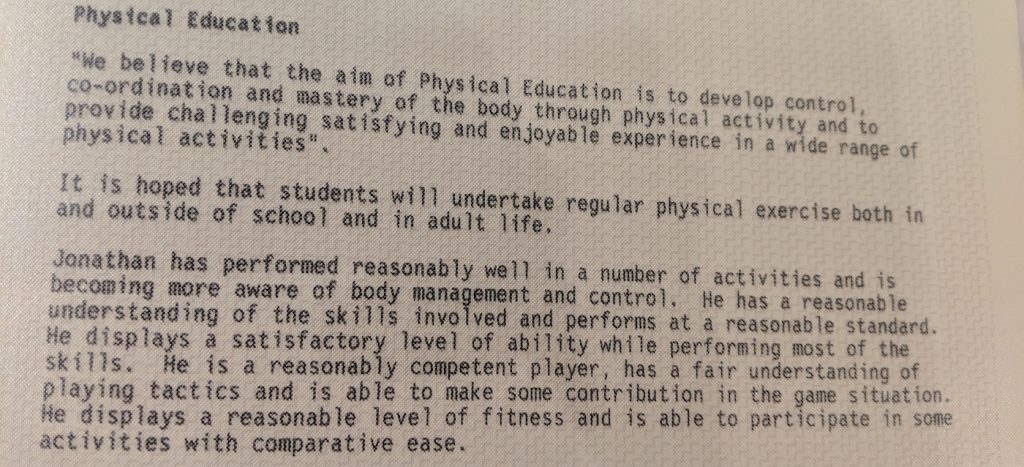
The outcome here was somewhat unsurprising. I got pretty average grades, mainly Cs, for the subjects I studied. For the ones I was interested in, I got a smattering of Bs, and for the ones I didn’t care about I got Ds and Es. I don’t think I got a single A in my entire school career.
Now, this is not to suggest I didn’t understand the importance of school or that I didn’t enjoy it. I took school seriously and I generally had a good time going. Similarly, for any young people reading this, school is really important and you should give it your best. My parents were, and have always been, unbelievable supportive. They echoed this mantra, “All we want you to do is to try your best and put as much effort in as you can”.
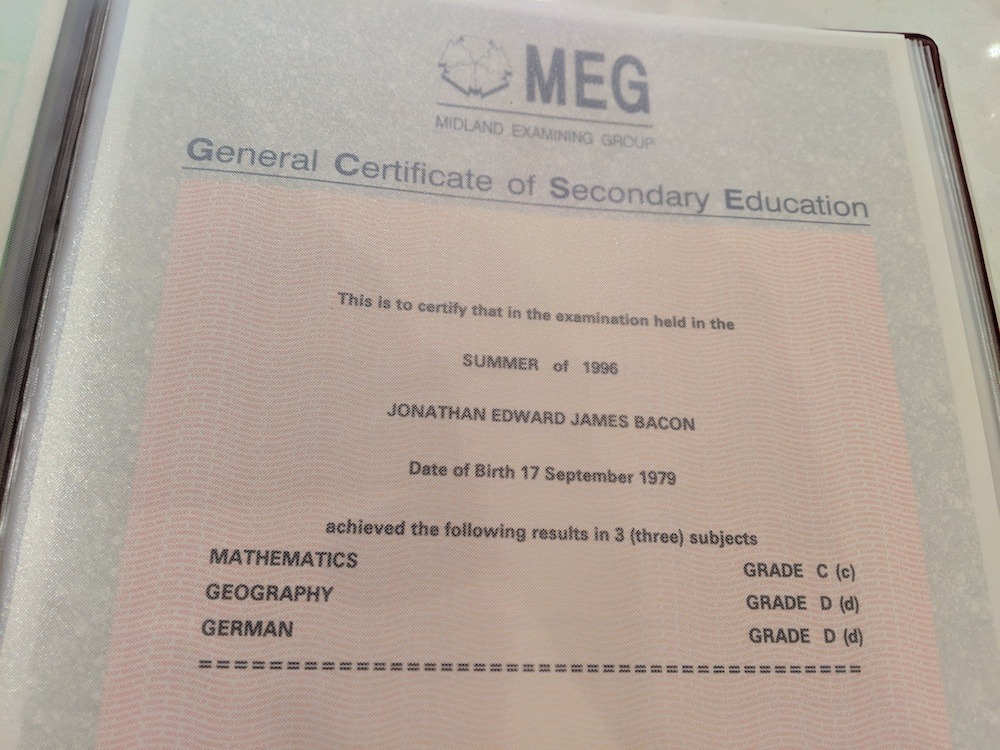
Now, while all this was happening, I had two significant things going on outside of school.
Firstly, I was delving more and more into the music rabbit-hole. I was discovering different styles of music, grabbing anything I could, from the Rolling Stones, to Iron Maiden, to Metallica, and beyond. I was learning and playing guitar, and I started my own band at school. My mind was obsessed with music, discovering new bands, learning how to be a better player, and playing with other musicians.
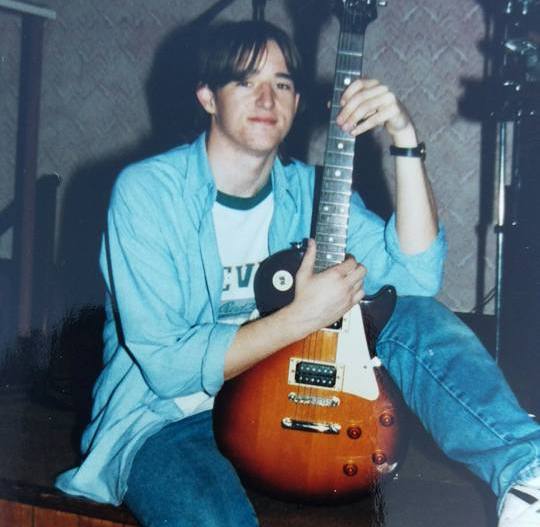
Secondly, I was fascinated by technology, and I was lucky enough to have access to the Internet at home. Back in the dark ages in the UK, we had to pay 10p/minute to connect online. I had a genius idea: for every minute I spend online, I will pop one crisp 10p piece into a box next to the computer. My parents agreed to this optimistic arrangement, fully supporting their son discovering and exploring this new technology landscape. The bill came in: £280 of charges, six quid in the box. My 16-year-old self was in for a throaty bollocking, and rightly so.
As I descended into A-Levels, which are a notable step up in work and complexity from GCSEs, my interest in music and tech outside of school also escalated. My evenings were dominated by rehearsing and playing gigs in my first metal band, Conspiracy, and twice a week I attended night school to learn C programming with my brother, Simon.
When I completed my A-Levels, my grades were…well, nothing to boast about. Two Cs, a D, and an N. Curious what an N is? I think it means I spelled my bloody name wrong on the exam paper. I was disappointed. I genuinely worked hard, but I struggled to get the results I wanted.
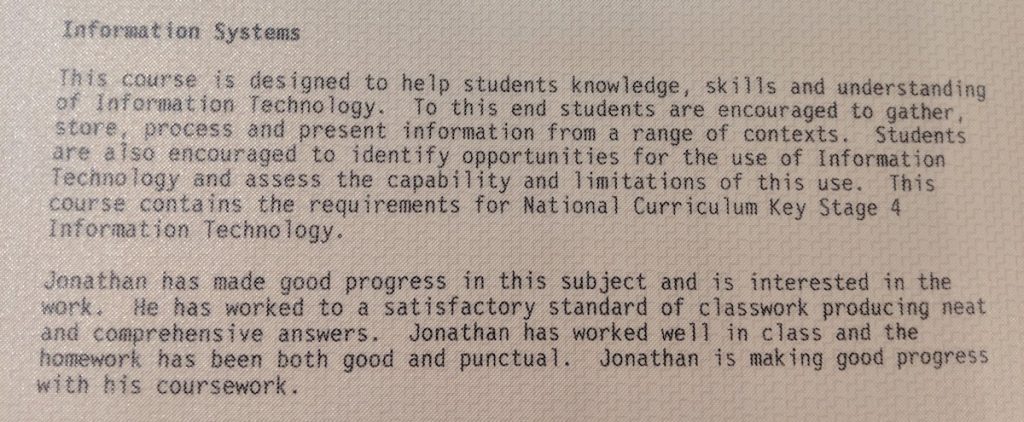
Interestingly though, my IT teacher took me aside one day and told me he saw a lot of potential in me. He offered to teach me some more advanced topics after school, which I eagerly jumped at. Slowly I was starting to see where my interest and potential was coalescing.
My A-Levels performance limited my options for University. Given my interest in tech, I ended up picking Interactive Multimedia Communication at Wolverhampton University. While a relatively bog-standard university, the course was founded by a well respected professor in the field. It focused on the (at the time) new era of multimedia, incorporating digital video, audio, and optical media.
The Game Changer
Shortly before I packed up and went to university, my brother Simon introduced me to Linux and open source. It might sound hyperbolic, but it completely flipped my world upside down. Here was a technology, produced and powered by people who work together openly to improve it, and anyone could roll their sleeves up and get involved. This didn’t just fascinate me, it gave me a real sense of purpose.
The next four years were a blur. I started a website to bring the UK Linux community together, went to university, and started the Wolverhampton Linux Users Group. I met new and interesting people, and started contributing to projects such as KDE and GNOME. I wrote little bits of code and put them online. I organized conference booths, wrote documentation, and started speaking at events. I was fueled by this work because it had meaning, and that meaning was bolstered by a global community all wired up with the same vision.
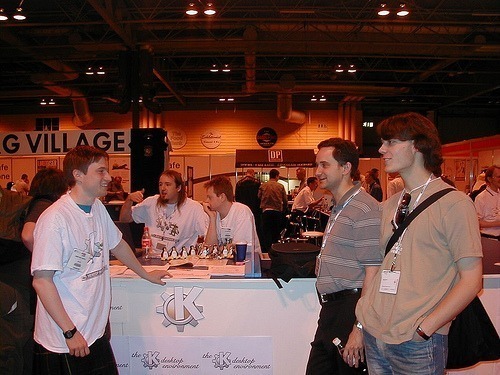
At a conference in London, I had a non-zero number of beers with two editors who were launching a new Linux magazine called Linux Format. I plucked up the courage to ask if I could write an article and they said, “Yes, but if it is shit, we won’t publish it”. This seemed like a fair arrangement.
The article passed muster and it went into the magazine. I started writing more and more and when I completed university, I decided to be a full time writer. It didn’t pay much, but I loved what I did, and it earned enough money to support the relatively frugal life my girlfriend and I lived. This is when I got the first taste of being able to devote my career to something I loved, and it was an amazing feeling.
One of the articles I wrote was about a newly minted organization in Birmingham called OpenAdvantage. They were focused on training people in the West Midlands in Open Source; especially focused on manual laborers re-skilling in technology as more and more factories moved out of the area. After the article was published I was invited to lunch by one of the founders, Paul Cooper, where he somewhat surprisingly offered me a job to be a consultant there.
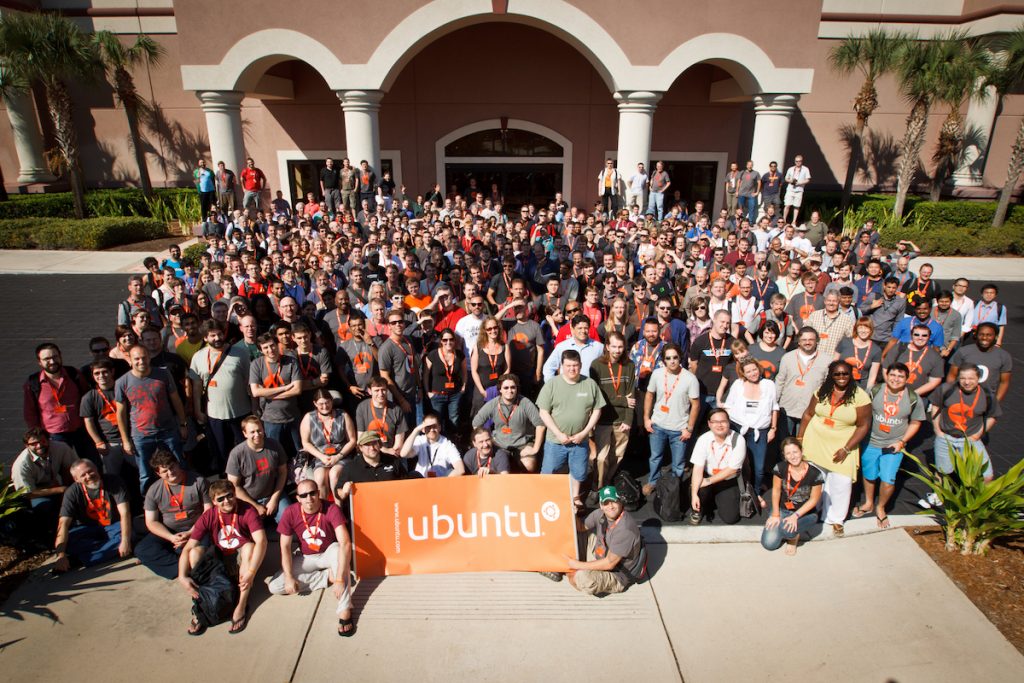
Credit
I took the job and spent two years doing a range of things I had never done: consulting, training, learning new technologies, and more. While nerve-wracking at first, it gave me a taste for jumping in the deep end and figuring things out as I went. What followed were careers at Canonical, XPRIZE, GitHub, and then onto my current consulting business.
Patterns
When I reflect back on my career, it had the key elements of the ascribed career path from GCSEs to university, but what I didn’t know was that so much of what we do outside of that path plays such a key role in our forward momentum. I am thankful that my parents were so supportive in both these interests inside and outside of school.
This made me realize that a career is really a series of fortuitous events glued together and the more events you can introduce, the more opportunities can manifest. If my brother had not introduced me to Linux, I would have never have started participating in open source, and would have never been at the conference where I met the editors. This means I would have never have written the article about OpenAdvantage, and never led to meeting Paul Cooper and taking the role there.
When I shared this story to the kids at the career day, I summarized much of this hindsight as five key patterns that I wish I had known about at their age.
1. Do what you love
It may seem obvious, but our motivation is fueled by what we love. If we focus on building a career out of the things that interest and motivate us, we can chart an ultimately fulfilling and happy life.
For example, I have always loved working with people, writing, and speaking. I love technology and how it can enable people to work together. I am passionate about the power of communities and figuring out the blueprint for how we build and sustain them.
Now, figuring out what you love is easier said than done when you are 16. Take some time to really think about what you enjoy, what motivates you, and what you look forward to doing. While your career will never be a total bed of roses, if you can wire it up to focus on the things you love, you will be much more fulfilled in your work.
2. Always push yourself, and find room to grow and improve
I think one of the challenges so many young people face is that they assess their capabilities on a binary scale: either I am good or bad at that skill or activity. Life doesn’t really work that way: our capabilities are more a sliding scale, and when we learn, practice, and evolve, the scale slides in the right direction.
This happens with everything. Whether you are learning how to code, play the guitar, how to collaborate in teams, be a manager, manage your finances, get fit, or anything else. When we see every new activity as a sliding scale where we start near the bottom and gradually push ourselves further and further up the scale as we practice, it gives us a sense of confidence and accomplish. To do this we need to know that the journey starts at the beginning and progress as we invest more time and practice into it.
Fitness instructors like to get their students into a state of feeling “comfortably uncomfortable”. Being on the edge of what you can accomplish and what is new and different is where this growth tends to happen. Always be proud of your accomplishments while also seeing how much further you can go.
3. Don’t get beaten down by yourself or others
It is easy to dwell on our failures. We all get it wrong sometimes. What’s more, elements such as Imposter Syndrome (see my article about it and how to manage it) can further exacerbate our self-criticism.
Take it easy on yourself. We are all eternal students and it doesn’t matter whether you have been in your career for 50 minutes or 50 years, we are all learning. Similarly, you see all those CEOs, COOs, CTOs, VPs, Founders, Presidents, and Board Members? They are all still learning and self-conscious about their performance too.
See every day as an opportunity for learning and growth, and an opportunity for an objective view of your progress. Acknowledge your capabilities and flaws, and then explore ways to keep growing. Letting yourself or others get your down doesn’t help anyone.
4. Your life is dictated by your vision of the future
When you are younger there are a lot of questions about, “What do you want to be?”
Sometimes it can be difficult to see a vision of your future while also figuring out what is realistically possible. You can probably easily see a vision of a restaurant waiter, but what about an actor, a founder, a professional musician, or a writer? Those can often seem like much further away realities.
Here’s my take: go big or go home. If you shoot for the moon and don’t quite make it, you will (a) get further than you thought you would, and (b) you will stretch yourself and your potential further too. It sounds like a cliche, but dream big, and it will give you the excitement and potential to get there.
5. The world is full of mentors, if you look for them
I learned this too late in life. We are surrounded by people who have enormous expertise and experience and who are often quite happy to share it.
Just look at your friends, families, teachers, and parents. Just look at the huge array of books, YouTube videos, training courses, and articles online. Just look at online communities, forums, and message boards.
There is so much insight out there. If you don’t have the answers to something you can find it quicker and more easily than ever before. Similarly, if you don’t know how to get started or want a gut check on your thinking, there are so many people who can help.
Here’s the key: we need to open our minds to always learning, always striving to grow and evolve, and being comfortable asking questions. When I was younger I didn’t ask enough questions and I think it inhibited my progress. Asking questions isn’t a sign of weakness or incapabilities, it is a sign of growth, and that is awesome.
So, good look on your journey. When I met these young people at the school careers day, I was inspired by their enthusiasm, interest, and questions. It can be a scary time figuring out what your career is going to be, but the good news is that there is enormous opportunity out there.
What guidance would you give to a young person evaluating their career choices? Share your tips in the comments!








